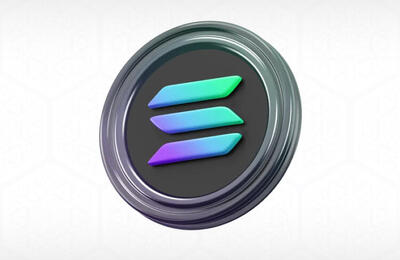
Cryptocurrency exchanges hold a crucial position in the digital world. They serve as the main platforms for purchasing, selling, and trading cryptocurrencies. With the continued rise in popularity of cryptocurrencies, it's vital to know about the important players in the exchange scene and what factors to consider when picking the right platform. In this article, we'll delve into the varied world of cryptocurrency exchanges, their distinct features, and the aspects individuals should keep in mind to make well-informed choices.
Centralized Exchanges
The most prevalent type of cryptocurrency exchanges are centralized exchanges (CEX). These platforms function as middlemen, enabling the exchange of cryptocurrencies between buyers and sellers. Centralized exchanges retain control over users' funds and necessitate users to deposit their assets into the platform's wallets. They provide user-friendly interfaces, high liquidity, and an extensive range of trading pairs.
Decentralized Exchanges
Decentralized exchanges (DEX) operate on blockchain technology and eliminate the need for intermediaries. They enable peer-to-peer trading directly from users' wallets, providing more control and security over funds. DEX platforms do not hold user assets, reducing the risk of hacks or theft. However, decentralized exchanges typically have lower liquidity compared to centralized exchanges, and their user interfaces may be less intuitive.
Security and Trust
Security should be a top consideration when choosing a cryptocurrency exchange. Look for platforms that prioritize security measures such as two-factor authentication (2FA), cold storage for funds, and regular security audits. Research the exchange's track record and check if it has experienced any major security breaches in the past. Additionally, consider the exchange's reputation and user reviews to gauge the level of trustworthiness and reliability.
Supported Cryptocurrencies
Different exchanges offer varying ranges of supported cryptocurrencies. While most popular exchanges support major cryptocurrencies like Bitcoin (BTC) and Ethereum (ETH), not all exchanges list smaller or newer coins. If you have specific cryptocurrencies in mind that you want to trade, ensure that the exchange supports those assets. Additionally, consider the trading pairs available on the platform and the liquidity of those pairs to ensure smooth trading experiences.
Trading Fees and Costs
Trading fees can vary significantly among exchanges and can impact your overall profitability. Most exchanges charge a percentage fee based on the trading volume or a fixed fee per transaction. Compare fee structures across different platforms and consider the trading volume you anticipate to determine the cost-effectiveness of using a particular exchange. Some exchanges may also offer fee discounts or loyalty programs for frequent traders.
User Experience and Interface
The user experience and interface of a cryptocurrency exchange can greatly influence your trading journey. Look for platforms that offer intuitive and easy-to-navigate interfaces, making it simple for both beginners and experienced traders to use the platform. Advanced trading features like limit orders, stop-loss orders, and charting tools may also be important for more experienced traders. Consider whether the exchange offers mobile applications for trading on the go.
Customer Support and Reputation
Reliable customer support is crucial, especially in the fast-paced cryptocurrency market. Look for exchanges that provide responsive customer support channels, such as live chat or email, to address any concerns or issues you may encounter. Additionally, research the exchange's reputation within the cryptocurrency community. Pay attention to factors such as the exchange's history, transparency, and how it handles security incidents or user complaints.
Regulatory Compliance
Regulatory compliance is becoming increasingly important in the cryptocurrency industry. Exchanges that adhere to regulatory standards and operate in jurisdictions with clear guidelines provide an added layer of trust and legal protection. Check if the exchange is registered with relevant regulatory bodies and follows Know Your Customer (KYC) and Anti-Money Laundering (AML) procedures. Regulatory compliance helps ensure the legitimacy and transparency of the exchange's operations.
Investment Prospects
Cryptocurrency exchanges play a significant role in the world of staking crypto. These exchanges serve as platforms where users can not only trade and hold various cryptocurrencies but also participate in staking activities. Many exchanges now offer staking services, allowing users to delegate their staking responsibilities to the exchange itself. By staking through exchanges, users can benefit from the convenience of a user-friendly interface and simplified staking processes. Additionally, exchanges often provide enhanced security measures for staked funds, reducing the risk of loss or theft. Moreover, staking through exchanges may offer additional benefits, such as more accessible liquidity, as users can easily convert their staked assets into other cryptocurrencies or fiat currencies. This integration of staking and cryptocurrency exchanges has made it more accessible and convenient for individuals to participate in staking activities and earn rewards while trading and managing their crypto assets in a single platform.
When it comes to finding the right crypto exchange for your trades, it's crucial to consider factors like security, fees, and user experience. Explore this crypto exchange to discover a platform that prioritizes these aspects, ensuring a seamless trading experience tailored to your needs.
Choosing the right cryptocurrency exchange is crucial for a seamless and secure trading experience. Consider factors such as exchange type, security measures, supported cryptocurrencies, trading fees, user experience, customer support, regulatory compliance, and investment prospects. By conducting thorough research and due diligence, you can select an exchange that aligns with your trading needs, risk appetite, and preferences. Remember to stay informed about the evolving cryptocurrency exchange landscape and adjust your choices as the industry continues to mature.













